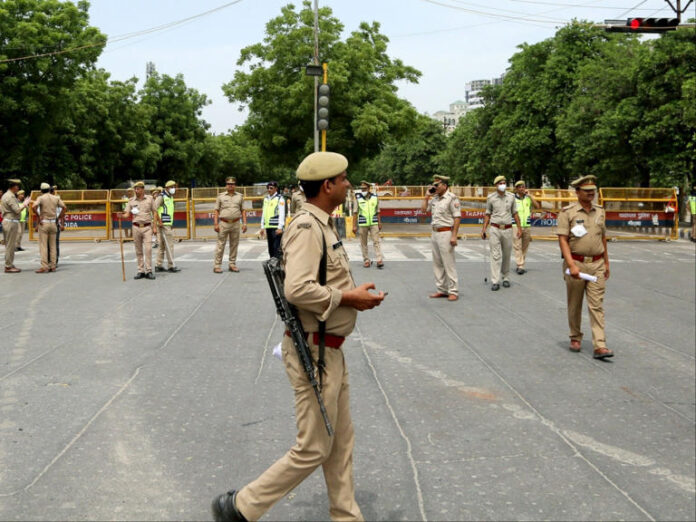In the state of Assam, particularly in the Cachar district, authorities have imposed Section 144 of the Criminal Procedure Code (CrPC) as a precautionary measure ahead of the elections. Section 144 empowers the district administration to prohibit the assembly of more than four people in an area.
The decision to invoke Section 144 in Cachar district comes amidst concerns regarding the maintenance of law and order during the electoral process. This move aims to prevent any untoward incidents or disruptions that may arise due to political rallies, protests, or other forms of public gatherings.
Under Section 144, several restrictions have been put in place to ensure the safety and security of the residents as well as the smooth conduct of the electoral process. Some of the key restrictions imposed in Cachar district include:
- Prohibition on Public Gatherings: Section 144 prohibits the assembly of more than four people in a public place. This restriction aims to prevent large crowds from gathering, which could potentially lead to disturbances or law and order issues.
- Restrictions on Processions and Rallies: Political processions, rallies, and other public gatherings have been banned to avoid any incidents of violence or clashes between different groups or political parties.
- Closure of Educational Institutions: As a precautionary measure, educational institutions such as schools and colleges have been instructed to remain closed during the period of Section 144 imposition. This measure ensures the safety of students and faculty members and minimizes the risk of any disruptions to academic activities.
- Suspension of Internet Services: In some cases, authorities may decide to suspend internet services to prevent the spread of misinformation or rumors that could incite violence or create unrest among the public.
- Ban on Sale of Liquor: The sale of liquor may be banned or restricted during the period of Section 144 imposition to prevent alcohol-fueled incidents or disturbances.
- Increased Police Presence: To enforce these restrictions effectively and maintain law and order, authorities may deploy additional police personnel in sensitive areas.
- Exemption for Essential Services: While stringent measures are in place, exemptions are usually granted for essential services such as hospitals, pharmacies, and emergency response units to ensure that vital services continue uninterrupted.
It is important for residents of Cachar district to adhere to these restrictions and cooperate with the authorities to ensure a peaceful electoral process. Violation of Section 144 can lead to legal consequences, including arrest and prosecution.
The imposition of Section 144 reflects the government’s commitment to maintaining law and order and conducting free and fair elections. By preemptively addressing potential security concerns, authorities aim to create a conducive environment for voters to exercise their democratic rights without fear or intimidation.
However, while these restrictions are necessary to ensure public safety, there is also a need to strike a balance between security measures and the fundamental rights of citizens, including the right to freedom of assembly and expression. It is essential for authorities to exercise restraint and avoid unnecessary curtailment of these rights.
In addition, the imposition of Section 144 in Assam’s Cachar district ahead of the Lok Sabha elections underscores the importance of ensuring a secure and peaceful electoral process. While these restrictions may inconvenience some, they are vital for safeguarding democracy and upholding the rule of law. It is incumbent upon both the authorities and the public to work together to ensure that the electoral process is conducted smoothly and transparently, fostering trust and confidence in the democratic system.



